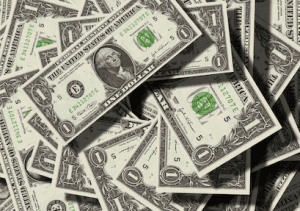It was announced in May 2022 that Americans have an average of $9,000 less in savings this year than they did in 2021. This has left many wanting to start budgeting to keep better track of their finances.
Rising costs have meant that many Americans are trying to cut back on their spending. Similar to food dieting, this can be challenging and lead to impulse decisions. So at Dollar Hand, we have presented a guide on how to stick to a money diet and to boost your savings.
What Is A Money Diet?
A money diet is similar to a food diet but instead of reducing the number of calories consumers eat, money dieters reduce the amount of cash they spend. Examples of cutting back on spending include canceling subscriptions or shopping at cheaper supermarkets.
However, similar to a food diet it is easy to relapse as those in need of a boost may end up impulse buying a non-essential item or a luxury purchase. All of their hard work and sacrifices would have been a waste of time. So to prevent this from happening, consumers can follow some of our easy tricks and tips mentioned below to help stick to their budget.
How To Follow A Money Diet
Prioritize Your Spending
It has been found that consumers often spend in isolation. So for instance, people may happily spend $4 a day on a coffee and not bat an eyelid. However, rethinking your priorities and working out that making a coffee at home instead could save you nearly $1000 a year, would mean that you would have an extra grand to contend with.
Let’s put this idea into context – let’s say Becky’s energy bills have increased by $500 a year. However, Becky was hoping to use $500 of her spare cash to go on a summer vacation but now believes she needs to sacrifice a holiday and spend it on her utility costs. Nevertheless, if she prioritized her spending and made a simple switch, such as making a homemade coffee rather than buying a Starbucks on the way to work, she could pay her energy bills and still spend the remaining $500 saved from homemade coffees on a holiday.
You could also look at easy ways to reduce your spending. For instance, there are many ways to save money on your energy bills and to save money on petrol.
Include some treats
Similar to how on food diets people will usually enjoy lower calorie treats to curb their cravings, money dieters should incorporate some lower priced rewards into their spending. This should prevent them from giving in and splashing out on treats that are more costly in the long run.
Choosing some alternative and cheaper items can still give consumers a spending buzz. For instance, going to McDonalds rather than a fancy restaurant or going on an off-peak cinema trip rather than during busy times. Consumers will have something to look forward to and in turn will hopefully avoid impulse purchases.
Ignore temptations
Avoiding temptations on social media or through email is certainly a wise idea. If you know that you will be tempted by your favorite brand’s weekly newsletter being sent to your inbox, then unsubscribe to prevent yourself from heading to their website to purchase their latest products. Removing as many of these brands from your email will definitely add up and prevent you from making regular unnecessary purchases.
Create meal plans
Creating a meal plan and making a list will help you to avoid any unnecessary purchases at the supermarket or whilst online food shopping. By deciding what you are going to eat in advance, you can get the exact ingredients and not buy products that you won’t end up using. If it’s not written down on your list, then simply do not buy it and see how much money you can save.
Meal plans can also help you to avoid the easy slippery slope into getting takeaways as if you have dinners planned then you will not even need to consider take out. Get creative and make meals that are similar to your favorite restaurants but at a quarter of the price. You could also meal prep and have the food ready to consume to prevent the desire to eat out.
Batching cooking and freezing meals could also help you to save some extra cash since it is usually cheaper to purchase food in bulk sizes. Equally, buying some ready meals to put in the freezer for lazy days is not a bad idea as whilst it is more expensive than doing it yourself, it is still cheaper than getting takeaways.
Set Yourself Challenges
Incentivizing yourself with interesting challenges can make your money diet much more bearable. For instance, adding a certain number of dollars each week to a jar or creating a savings account can help you see how well you are doing and how much money you are saving during your budgeting.

Cancel Unnecessary Subscriptions
Whilst subscriptions can be convenient, they may not be necessary. For instance, whilst it is useful to pay for Amazon Prime since the company offers efficient delivery services and extra discounts, if you do not actually order that much from Amazon it may not be that beneficial for you. Likewise, if you rarely exercise but still have a gym membership, consider terminating the subscription and going for a jog in the park instead.
Was this article helpful?
Justine is a full-time writer with lots of expertise and a wealth of experience in the financial world. In particular, she specializes in household income and consumer finance across the United States. Follow her articles for useful advice and top tips, guides on how to save money and lots more.


